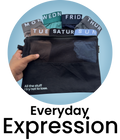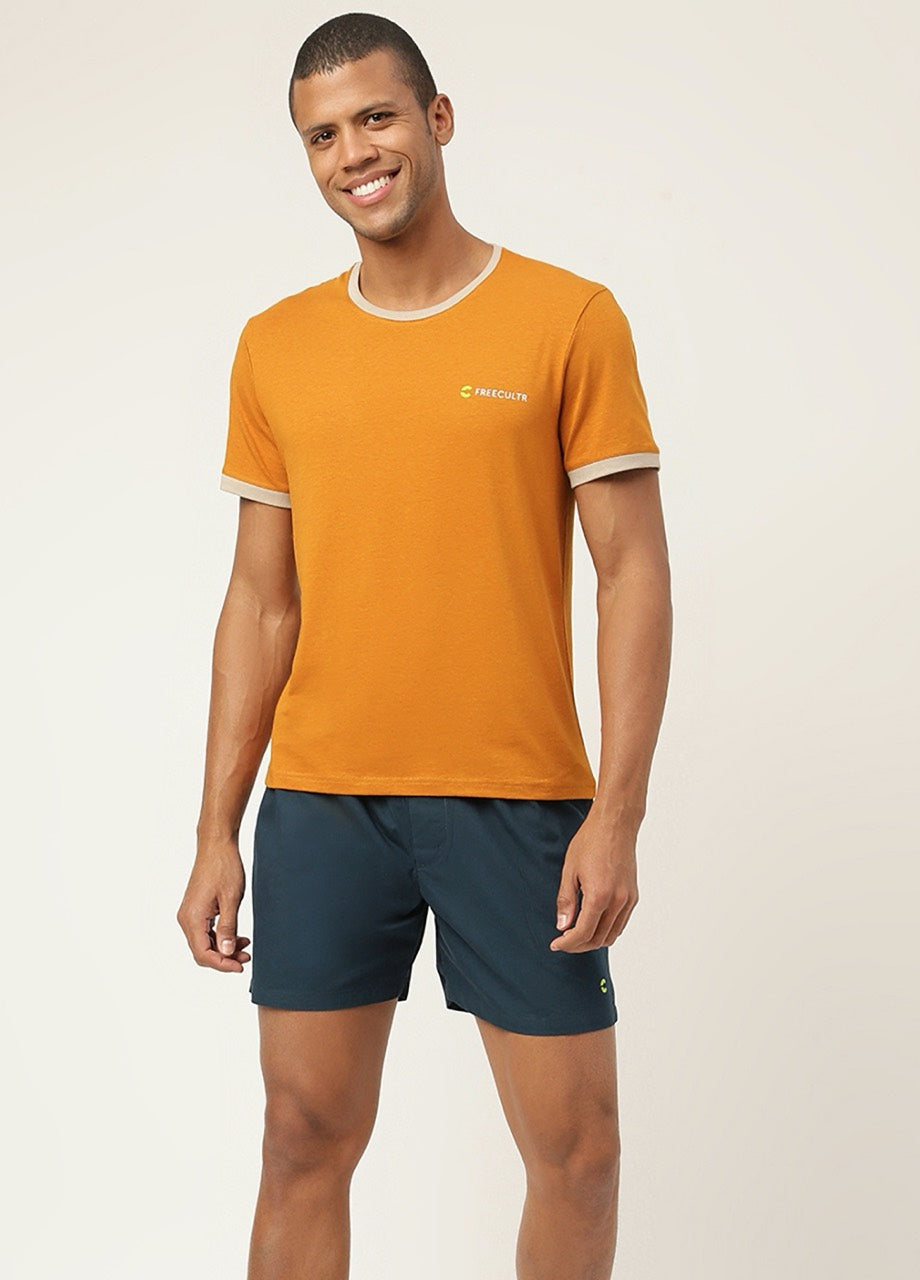The quest for true comfort in warm weather often boils down to the unseen engineering of your tanktop. Beyond simple aesthetics, the best tanktop fabrics actively manage your microclimate, employing advanced textile science to keep you cool, dry. comfortable. Modern developments in fiber technology, from highly engineered moisture-wicking polyesters that rapidly move sweat to the fabric surface for evaporation, to sustainable options like Tencel Lyocell known for exceptional breathability and soft drape, revolutionize everyday wear. Consumers now seek innovative blends, perhaps a cotton-modal mix for unparalleled softness or a recycled nylon-spandex for robust athletic performance, where each fiber contributes specific properties like enhanced airflow or rapid drying. Understanding these material innovations unlocks a new level of personal comfort, adapting effortlessly to your body's thermal regulation needs.

Why Fabric Matters: More Than Just a Look
Ever thrown on a tank top, only to feel sticky and uncomfortable the moment the sun hits? Or maybe you’ve rocked one during a workout and felt weighed down by sweat? We’ve all been there! It’s easy to think a tank top is just a tank top. the truth is, the fabric it's made from makes a huge difference. It’s not just about how it looks. how it feels, how it performs. even how it impacts your confidence throughout the day. Choosing the right material can transform your experience from "ugh, it's hot" to "ah, this feels amazing!"
The secret sauce lies in understanding key fabric properties like breathability and moisture-wicking. Breathability is like your skin being able to "breathe" through the fabric, allowing air to circulate and heat to escape. Moisture-wicking, on the other hand, is a superpower that pulls sweat away from your skin and spreads it across the fabric's surface so it can evaporate quickly. Think of it as your tank top helping you stay dry, rather than holding onto all that moisture. Getting to know the Best tanktop fabrics means unlocking a new level of comfort and style.
The Natural Wonders: Earth's Gift to Your Wardrobe
Let's dive into the fabrics that come straight from nature. These often offer a soft touch and a classic feel, perfect for everyday wear.
- Cotton: The Everyday Hero
Cotton is probably the first fabric that comes to mind for comfort. for good reason! It’s a natural fiber harvested from the cotton plant. It's renowned for its incredible softness and breathability, making it a go-to for casual wear and lounging. Imagine that perfectly worn-in band tee – that's often 100% cotton.
- Pros Super soft, breathable, hypoallergenic, widely available, affordable, natural feel.
- Cons Highly absorbent (gets heavy and clammy when wet), slow to dry, can wrinkle easily, may shrink if not cared for properly.
- Best Use Cases Casual outings, lounging at home, layering, or whenever you prioritize a soft, natural feel over intense performance.
- Linen: The Breezy Elegance
Linen, derived from the flax plant, is cotton's sophisticated cousin. It's celebrated for its crisp texture and exceptional breathability, making it a summer staple. It literally feels cool to the touch!
- Pros Extremely breathable, quick-drying (even though it absorbs moisture), becomes softer with age, naturally antibacterial, creates a stylish, relaxed look.
- Cons Wrinkles very easily (part of its charm for some, a nuisance for others!) , less stretchy, can feel a bit stiff initially.
- Best Use Cases Beach days, relaxed summer brunches, resort wear, or anytime you want to look effortlessly chic and stay super cool.
- Bamboo: The Silky Soft Innovator
Bamboo fabric is a regenerated cellulose fiber made from bamboo pulp. It's a relatively newer player gaining immense popularity, especially for its luxurious feel and eco-friendly appeal.
- Pros Incredibly soft and silky (often compared to cashmere), highly breathable, excellent moisture-wicking properties, naturally hypoallergenic, often has natural antibacterial properties, sustainable source.
- Cons Can be less durable than some other fabrics, sometimes pricier, can stretch out over time, requires gentle care.
- Best Use Cases Loungewear, activewear for low-impact activities, sleepwear, or for anyone with sensitive skin looking for ultimate softness and breathability.
- Hemp: The Resilient & Sustainable Choice
Hemp fabric comes from the cannabis sativa plant (don't worry, it won't get you high!). It's one of the oldest fibers known to humankind and is making a big comeback due to its incredible durability and sustainability.
- Pros Extremely durable (gets stronger with each wash), highly breathable, naturally antimicrobial, excellent moisture absorption, eco-friendly to grow and process.
- Cons Can feel a bit stiff at first (softens beautifully over time), less stretchy, can be harder to find.
- Best Use Cases Eco-conscious fashion, sturdy everyday tanks, layering, or for those who appreciate long-lasting, sustainable garments.
The Synthetic Superstars: Engineered for Performance
When you need your tank top to work as hard as you do, synthetics are your best friends. These fabrics are engineered in labs to provide specific performance benefits.
- Polyester: The Performance Powerhouse
Polyester is a synthetic polymer derived from petroleum. It's the king of activewear for a reason, designed to keep you dry and comfortable when you're pushing your limits. If you're looking for the Best tanktop fabrics for your gym sessions, polyester is often at the top of the list.
- Pros Excellent moisture-wicking, very quick-drying, highly durable, wrinkle-resistant, holds shape well, resistant to shrinking and stretching.
- Cons Can feel less natural or "plastic-y" to some, can sometimes retain odors (though many are now treated with antimicrobial finishes), less breathable than some natural fibers if not engineered with ventilation.
- Best Use Cases High-intensity workouts, running, hiking, outdoor sports, or any activity where staying dry and maintaining performance is key.
- Nylon: The Strong & Smooth Contender
Nylon, another synthetic polymer, is known for its strength, elasticity. smooth feel. It's often found in athletic wear and blended fabrics.
- Pros Extremely strong and durable, very stretchy, smooth and silky feel, good moisture-wicking and quick-drying properties, abrasion-resistant.
- Cons Can feel less breathable than other options, can be prone to static electricity, not as soft as cotton or modal.
- Best Use Cases Sportswear, swimwear, tights, or base layers where durability and stretch are essential.
- Rayon (Viscose): The Drapey Dream
Rayon, specifically viscose, is considered a semi-synthetic fiber. It's made from regenerated cellulose, often from wood pulp. then chemically processed. It bridges the gap between natural and synthetic.
- Pros Soft, smooth. drapes beautifully, breathable, absorbs dyes well for vibrant colors.
- Cons Less durable when wet, can wrinkle easily, doesn't wick moisture as effectively as polyester or bamboo for intense activity, can shrink.
- Best Use Cases Fashion-forward tank tops, flowy styles, casual wear where drape and softness are prioritized over performance.
- Modal: The Ultra-Soft Rayon Cousin
Modal is a specific type of rayon made from beechwood pulp. It takes the best qualities of rayon and elevates them, offering an even softer, silkier feel with added durability.
- Pros Incredibly soft (even more so than regular rayon), excellent drape, resistant to shrinking and fading, good moisture absorption, breathable.
- Cons Can be more expensive than regular rayon, not ideal for intense moisture-wicking for high-impact sports.
- Best Use Cases Premium loungewear, everyday soft tanks, sleepwear, or as a luxurious alternative to cotton.
The Best of Both Worlds: Blended Fabrics
Sometimes, one fabric just isn't enough. that's where the magic of blends comes in! Textile engineers often combine different fibers to create fabrics that offer a superior combination of properties. This allows them to maximize the strengths of each component while minimizing their weaknesses.
For example, a common blend is cotton and polyester. Cotton brings its signature softness and natural feel, while polyester adds durability, wrinkle resistance. improved moisture-wicking. You get a tank top that feels good against your skin but also holds its shape and dries faster than 100% cotton.
Another popular blend is cotton with a small percentage of spandex (also known as Lycra or elastane). Spandex provides incredible stretch and recovery, meaning your tank top will move with you and bounce back to its original shape, preventing that stretched-out look. This is fantastic for activewear or simply for a more form-fitting, comfortable everyday tank.
Look out for blends like polyester-nylon for extreme durability and performance, or bamboo-spandex for ultra-soft stretch. These thoughtful combinations often represent some of the Best tanktop fabrics because they're designed with specific needs in mind.
Making Your Choice: Finding Your Perfect Tanktop Match
Now that you're a fabric expert, how do you pick the right tank top? It all comes down to what you need it for and what feels best to you. Don't just grab the first tank top you see; think about your day and your desired comfort level.
- Consider the Activity
- For Lounging & Casual Wear Cotton, Modal, Bamboo, or Rayon are your best bets. They prioritize softness, comfort. a relaxed feel.
- For Workouts & Active Pursuits Polyester, Nylon, or performance-oriented blends (especially those with spandex) are ideal. They excel at moisture-wicking, quick-drying. holding their shape.
- For Hot Summer Days & Beach Linen, lightweight cotton, or bamboo will keep you cool and airy.
- Personal Preferences Matter
- Do you prioritize extreme softness above all else? Go for Modal or Bamboo.
- Is durability and longevity key for you? Hemp or polyester blends might be the answer.
- Are you eco-conscious? Look into organic cotton, bamboo, or hemp.
- Do you hate wrinkles? Polyester and certain blends will be your friend.
- The "Feel Test" If you're shopping in person, always touch the fabric! Your hands can tell you a lot about softness, texture. perceived breathability.
Making an informed choice about the Best tanktop fabrics empowers you to build a wardrobe that truly supports your lifestyle, keeping you cool, dry. comfortable no matter what your day brings.
Comparison Table: Best Tanktop Fabrics at a Glance
Here’s a quick overview to help you compare the top contenders for Best tanktop fabrics:
| Fabric Type | Softness | Breathability | Moisture-Wicking | Quick-Drying | Durability | Best Use |
|---|---|---|---|---|---|---|
| Cotton | High | High | Low (absorbent) | Low | Medium | Casual, Lounging |
| Polyester | Medium | Medium (engineered for airflow) | High | High | High | Activewear, Performance |
| Bamboo | Very High | High | High | Medium-High | Medium | Loungewear, Light Active, Sensitive Skin |
| Linen | Medium (crisp) | Very High | Medium (absorbs & releases) | High | High | Summer, Beach, Relaxed Style |
| Modal | Very High | High | Medium | Medium | Medium-High | Premium Casual, Loungewear |
| Hemp | Medium (softens with wear) | High | Medium (absorbent) | Medium | Very High | Sustainable, Sturdy Casual |
Caring for Your Tanktops: Extend Their Life!
You've picked out the Best tanktop fabrics for your needs, now let's make sure they last! Proper care is crucial to maintaining their performance, feel. look. Always, always check the care label inside your garment first, as blends or specific finishes might require unique instructions. But, here are some general guidelines:
- General Rule Wash similar colors together and turn garments inside out to protect the outer surface.
- For Cotton Tanktops
- Machine wash cold with like colors.
- Tumble dry low or air dry to prevent shrinking and pilling.
- Avoid excessive heat.
- For Polyester & Nylon Tanktops (Synthetics)
- Machine wash cold on a gentle cycle.
- Hang dry or tumble dry on very low heat. High heat can damage the fibers and reduce their wicking ability.
- Avoid fabric softeners, as they can clog the wicking properties of performance fabrics.
- For Bamboo & Modal Tanktops (Delicates)
- Machine wash cold on a delicate cycle, or hand wash for best results.
- Lay flat to dry or hang dry. Avoid harsh wringing.
- Use a mild detergent.
- For Linen Tanktops
- Machine wash cold on a gentle cycle.
- Hang dry for a natural, slightly wrinkled look, or tumble dry on low and remove while slightly damp to iron out wrinkles if desired.
- Linen gets softer with each wash, so don't be afraid to wear it often!
- For Hemp Tanktops
- Machine wash cold or warm with a mild detergent.
- Tumble dry low or hang dry. Hemp is very durable and holds up well.
- It softens beautifully over time, so regular washing is fine.
A little care goes a long way in keeping your favorite tank tops feeling fresh, performing well. looking great for seasons to come!
Conclusion
Choosing the right tank top fabric isn't just about fashion; it's a strategic decision for your comfort and well-being, especially as current trends lean heavily into activewear and sustainable choices. Gone are the days of a one-size-fits-all approach; today, understanding the nuances of materials like breathable Pima cotton, silky bamboo viscose, or advanced moisture-wicking performance blends makes all the difference. I've personally found that opting for a lightweight, quick-drying synthetic for a humid summer hike, versus a soft, flowing Modal blend for a relaxed weekend, profoundly impacts my entire day. To truly stay cool, dry. comfortable, my actionable tip is simple: always check the fabric composition label. Don't be afraid to experiment with blends that offer the best of both worlds, like cotton-Tencel mixes known for their exceptional softness and environmental footprint, or innovative recycled polyesters that keep you cool without compromise. Brands are continuously evolving, offering enhanced fabric technologies designed for everything from intense workouts to everyday layering. For a deeper dive into how these versatile pieces can elevate your daily wear, explore the importance of a well-chosen Tank Top – Essential Layering & Everyday Comfort. Ultimately, investing in tank tops made from superior fabrics is an investment in your personal comfort and confidence. By making informed choices, you empower yourself to conquer any day, feeling fresh and unrestricted. Your wardrobe should support your lifestyle, not hinder it, so choose wisely and embrace ultimate comfort.More Articles
Women's Camisole with Built In Bra – Seamless Support & Layering VersatilityWomen's Built In Bra Tank – Effortless Support & Streamlined Style
Tank Top – Essential Layering & Everyday Comfort
Stylish Tops for Women – Elevate Your Look with Versatile Designs
FAQs
What's the top fabric choice for staying cool when it's super hot outside?
For ultimate coolness, lightweight cotton, especially Pima or Supima, is fantastic due to its exceptional breathability. Linen is another excellent choice; its natural fibers allow air to circulate freely, making it feel breezy even in scorching temperatures.
I tend to sweat a lot. Which tank top fabrics are best for keeping me dry?
If sweat is your main concern, look for fabrics with excellent moisture-wicking properties. Performance synthetics like polyester or nylon blends are specifically engineered to pull sweat away from your skin to the fabric's surface where it can evaporate quickly. Merino wool is also surprisingly good at wicking moisture while regulating temperature, without feeling clammy.
Are natural fabrics always better than synthetic ones for comfort and breathability?
Not always! While natural fabrics like cotton and linen are incredibly breathable and soft, modern synthetics have come a long way. High-tech polyester and nylon blends are designed for superior moisture-wicking and quick-drying, making them incredibly comfortable for active wear. It really depends on your activity and personal preference.
What fabric will feel the softest and most comfortable against my skin all day long?
For an ultra-soft feel, modal and rayon (which are semi-synthetic, derived from plant cellulose) are incredibly smooth and drape beautifully. High-quality cotton, like Pima or Egyptian, is also known for its luxurious softness. Merino wool, surprisingly, is very fine and soft, not itchy like traditional wool.
Do any tank top fabrics help reduce odors, especially after a workout?
Yes, some fabrics are better at resisting odor. Merino wool naturally possesses antimicrobial properties that help prevent the growth of odor-causing bacteria, making it a great choice for extended wear or multiple workouts. Some synthetic fabrics also come treated with antimicrobial finishes to help combat odor.
What's a good all-around fabric if I want something versatile for different activities?
For a versatile all-rounder, a blend of cotton and a synthetic like polyester or spandex is often a great choice. It gives you the breathability and comfort of cotton with the added durability, stretch. some moisture-wicking benefits of the synthetic fibers. Merino wool is also incredibly versatile, performing well in various temperatures and activities.
Should I look for different fabrics if I'm working out versus just lounging around?
Absolutely! For working out, prioritize performance synthetics (polyester, nylon, blends) or merino wool for their superior moisture-wicking, quick-drying. often odor-resistant qualities. For lounging, comfort is key, so soft cotton, modal, rayon, or linen blends are perfect for their relaxed feel and breathability.




